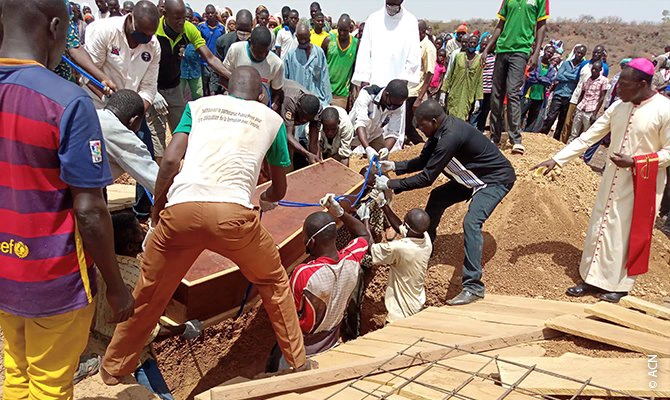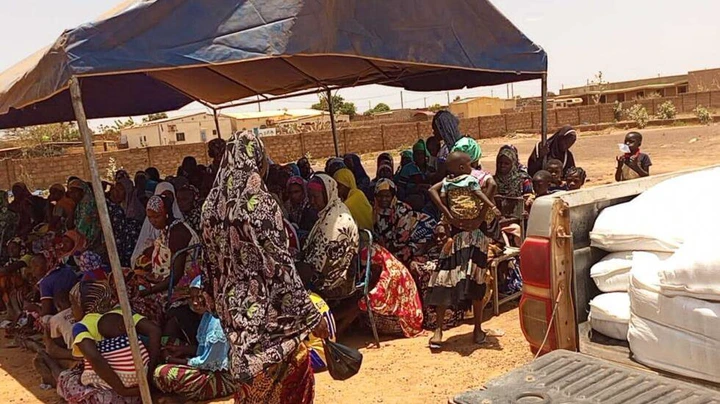
Families of the victims of the August 24 attack in Burkina Faso have blamed the country’s junta leader, Captain Ibrahim Traore, for the massacre that left hundreds dead. The attack on Barsalogho village has been described as one of the deadliest in Burkina Faso’s struggle against jihadist violence. The Justice Collective for Barsalogho (CJB), representing the families of the victims, has openly criticized Traore, accusing him of “contempt” and failing to protect the civilians. They allege that over 400 people were killed as a result of Traore’s prior orders for local security forces to mobilize civilians to dig trenches for the village’s defense.
According to CJB, these civilians, who were forced to dig the trenches, were ultimately massacred by the attackers in those very trenches. The attack was claimed by the Al-Qaeda-linked group Jama’at Nusrat al-Islam wal-Muslimin (JNIM), and videos released by the assailants revealed the horrifying details of the assault. Despite the magnitude of the tragedy, Traore has not addressed the incident publicly, which has drawn widespread condemnation for his lack of empathy and response to the suffering of the victims and their families.
The CJB is calling for Traore to take responsibility and seek forgiveness from the community in Sanmatenga Province, where the massacre occurred. They have declared Barsalogho a “martyr city,” forever embedded in the memory of the Burkinabe people.

Though Burkina Faso’s political environment often discourages open criticism of leadership, the scale of this attack has forced some civil society groups to speak out. Since 2015, Burkina Faso has been grappling with insurgencies that have displaced nearly two million people and caused thousands of deaths. Prime Minister Apollinaire Joachimson Kyelem de Tambela acknowledged the massacre as a tragedy but has not provided further information. Civil society groups, including the Citizen Coalition for the Sahel, continue to urge the government to investigate the attack thoroughly, apprehend those responsible, and ensure justice for the victims and their families.
This violence is part of a larger conflict that has devastated the country, leading to over 20,000 deaths since 2015. The Armed Conflict Location & Event Data Project (ACLED) estimates that approximately 3,800 people have died in the violence this year alone.
For more updates, join our WhatsApp channel: https://whatsapp.com/channel/0029VabITrvEAKW7DSkTfP0J.